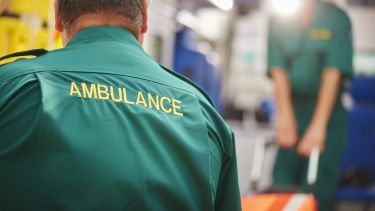- Study provides first insight into the impact of closing emergency departments on both patients and other emergency services
- Research found no reliable evidence that closure of emergency departments led to more deaths
- But closing emergency departments and re-organising emergency services didn’t improve outcomes for patients either
The research, which analysed five emergency departments (EDs) in England that were downgraded between 2009 and 2011, found there was no impact on death rates upward or downward, despite patients having to travel further to access emergency care.
In recent years a number of EDs have been closed or downgraded to day time services only treating minor problems, with NHS planners often citing reasons of inadequate staffing and safety concerns. However, until now there was little research evidence to support the decisions about closing EDs.
With further closures planned, the report funded and published by the National Institute for Health Research (NIHR), provides an insight into the implications for patients and emergency care providers, giving the NHS and policymakers evidence to inform decisions about future closures.
Dr Emma Knowles from the School of Health and Related Research (ScHARR) at University of Sheffield, said: “The public, in particular, require reassurance that the closure or downgrade of an ED does not result in increased death rates.
“The report suggests that any negative effects caused by an increase in journey time to an ED can be offset by other factors. For example, if new specialised services are introduced or if the care received at the now nearest hospital is more effective than that provided at the hospital where the ED closed.”
The study’s co-author, Professor Jon Nicholl, also from ScHARR, said: “It is important to highlight that we didn’t find the better outcomes for patients that planners hoped to see from closing these small departments either.
“This means it isn’t clear that the disruption and anxiety that can be caused by closing emergency departments is worthwhile.”
The study, which evaluated Newark, Rochdale, Hartlepool, Bishop Auckland and Hemel Hempstead both two years prior and two years after the EDs were downgraded, found evidence to suggest an increase in emergency ambulance incidents across the five areas. The increase was above and beyond the national increase which suggests the ED closures may have contributed to a higher workload within these areas.
Researchers also revealed strong evidence to suggest that residents who now have further to travel due to the closure of their local ED faced a longer time between them making a 999 call and arriving at hospital (9.1 minutes) compared to those whose distance changed the least.
“There is a national trend towards increasing levels of attendances at EDs and emergency hospital admissions. However, our study did not find consistent evidence that the impact of the ED closures exacerbated this trend,” added Dr Knowles.
“Without doubt, emergency care is expensive. The average cost of an A&E visit was £138 in 2015/16 and the cost of an unplanned inpatient stay was £1,609. The closure or downgrade of an ED may have financial implications but our study did not look at the economic consequences of these closures, and further research now needs to be conducted to examine this important aspect of the reorganisation on the emergency and urgent care system.”
Future studies analysing the wider health system and economic impact should now be considered including whether closing EDs has an impact on primary care.

